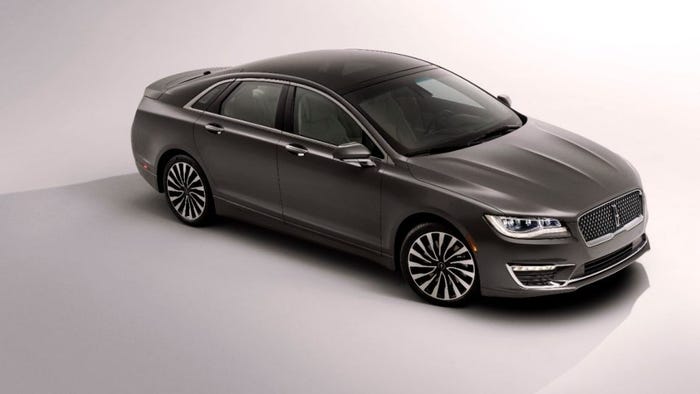Volvo, Cadillac, Tesla Top List of Most Unreliable Nameplates
Here are the ten most unreliable automotive nameplates. Four are luxury vehicle manufacturers.
November 2, 2018

Three luxury automakers headed the list of most unreliable nameplates published by Consumer Reports this week.Volvo, Cadillac, and Tesla were designated the three worst of 29 manufacturers in the new list. Lincoln, which makes luxury vehicles, was also among the most unreliable nameplates, coming in tenth worst.The proliferation of luxury manufacturers at the low end of the list came as no surprise to engineers at Consumer Reports, however. “Luxury has never equated to reliability,” Jake Fisher, director of auto testing for Consumer Reports, told Design News. “It’s harder to make a complicated, luxurious vehicle reliable than it is to make a simple vehicle reliable.”But Fisher said that fact is often lost on consumers. “It’s confusing because consumers expect to get more for their dollar,” he said. “And they will get more features, but they won’t necessarily get something that’s more reliable. A simple Corolla or Camry doesn’t have a lot of gimmicks, and that’s what makes it more reliable.”Consumer Reports drew its conclusions from owner surveys of more than 500,000 people. The surveys look at numerous problem areas including engine, transmission, suspension, cooling, electrical, climate, brakes, exhaust, paint, trim, noises, leaks, power equipment, and in-car electronics, among others.A few automakers climbed or fell in this year’s nameplate survey—most notably Mazda, which moved up nine spots to third best, and Buick, which dropped 11 spots to number 19.For the most part, however, the new survey proved what Consumer Reports engineers have been saying for years: that good reliability is about reducing complexity and fostering gradual change. “You can be complex and have all those features, as long as you roll them out in a slow, methodical way,” Fisher told Design News earlier this year. Lexus and Toyota, which are known for designing conservatively, grabbed the first and second spots, respectively.Companies that violated conservative principles fared poorly in the survey. One key example: A few automakers who employed small-displacement turbo engines had problems. Those included Lincoln, Hyundai, Mini, Volkswagen, and Buick.Tesla was another violator. Its Model X crossover had problems with its falcon-wing doors and center display screen. Those ongoing problems have been well-documented, but still not fixed, Consumer Reports said. “They tried to give it excitement, and they succeeded at that,” Fisher told Design News last March. “But there are needless complexities.”Consumer Reports ranked the Model X as one of the worst vehicles among 300 models reviewed in this year’s survey. The organization also retracted its recommendation of Tesla’s Model S sedan.RELATED ARTICLES:Are Small-Displacement Turbocharged Engines Reliable in the Long Run?Has Tesla Found a Better Way to Test and Validate Vehicles? 10 Disappearing Sedans Here, we offer a peek at the ten worst nameplates in the Consumer Reports survey. To view them and find out which of their models were the biggest violators, flip through the following slides.
Senior technical editor Chuck Murray has been writing about technology for 34 years. He joined Design News in 1987, and has covered electronics, automation, fluid power, and auto.
|
About the Author(s)
You May Also Like




